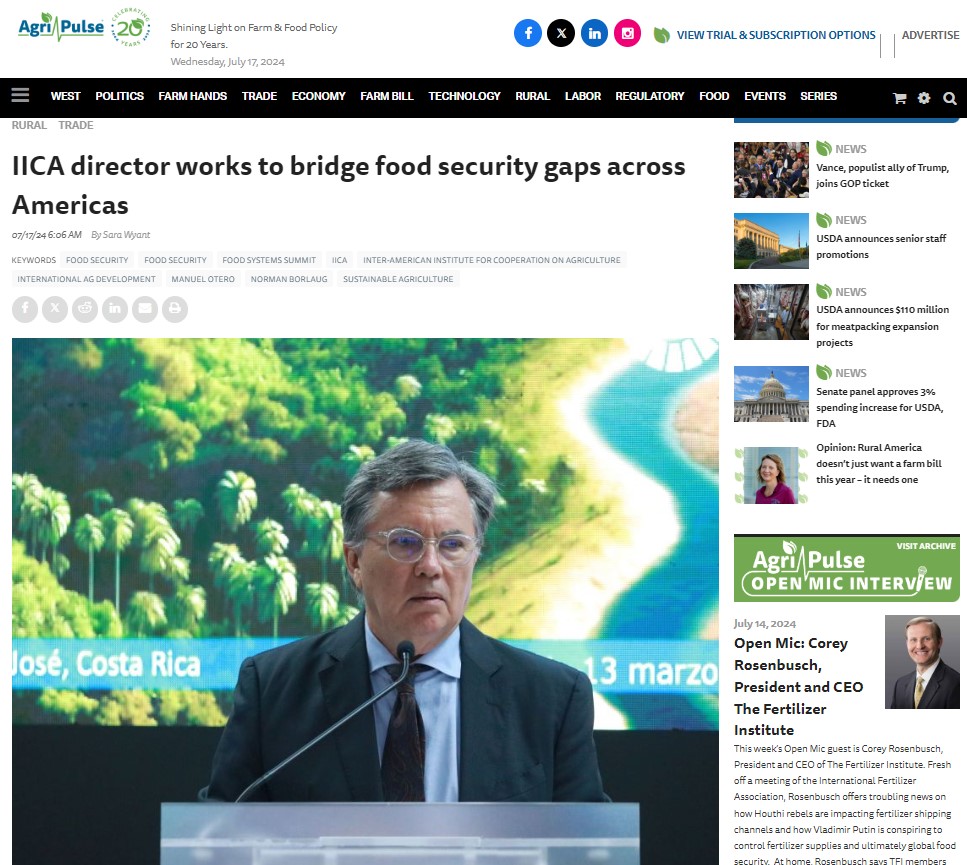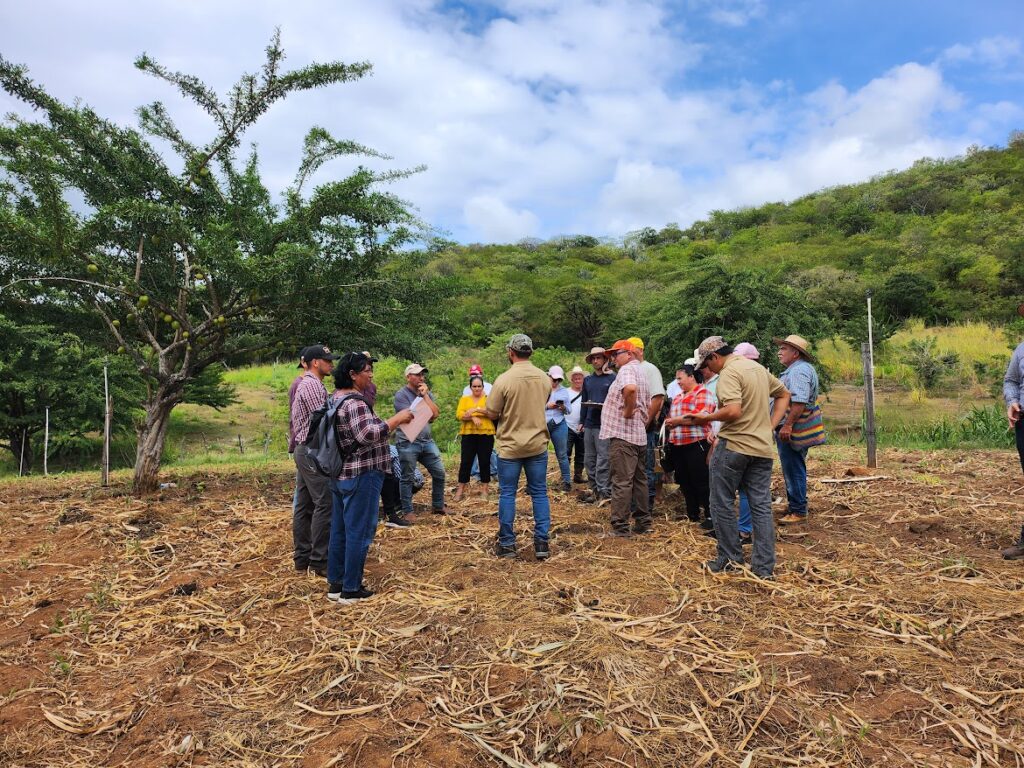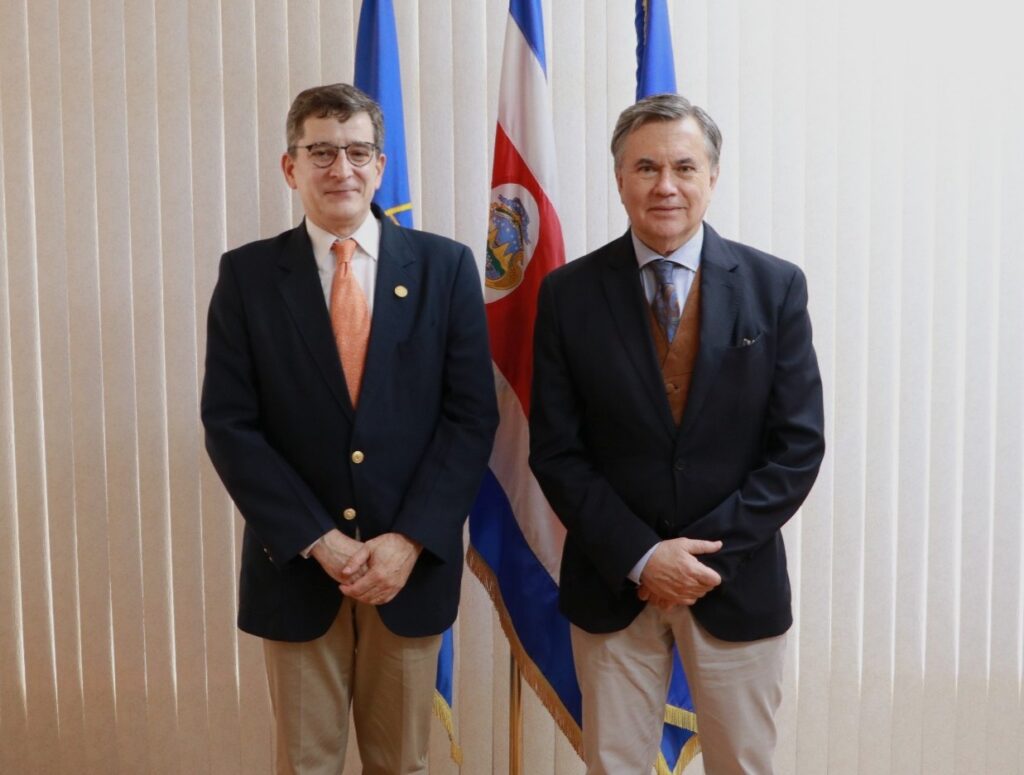The article briefly recounts the history of IICA, founded in 1942 thanks to the vision of Henry Wallace, then Vice President of the United States in the government led by Franklin D. Roosevelt. IICA was founded in the midst of the World War II, when the production and supply crisis created serious problems for the population.

Washington DC, 17 July 2024 (IICA). Agri-Pulse, a prestigious US media outlet dedicated to news about agricultural production and policies, has drawn attention to the efforts of the Inter-American Institute for Cooperation on Agriculture (IICA) to boost food security and sustainable agriculture across the continent.
The news service, which is based in Washington and is a trusted source of information for producers, lawmakers, Executive Branch officials, academics, students, consultants, members of civil society organizations and the private sector, has published an interview with the Director General of IICA, Manuel Otero, in which it point ups the Institute’s key influence in international forums where the future of agrifood systems is discussed.
The interview was conducted by Agri-Pulse editor and publisher Sara Wyant, an award-winning investigative journalist who has covered farming and policy debates in the sector since the 1980s and is recognized by the various producer associations in the United States.
The article briefly recounts the history of IICA, founded in 1942 thanks to the vision of Henry Wallace, then Vice President of the United States in the government led by Franklin D. Roosevelt. IICA was founded in the midst of World War II when the production and supply crisis created serious problems for the population.
Otero pointed out in the interview that the need to guarantee food security is as crucial now as it was when the Institute was founded. Wallace had previously been US Secretary of Agriculture.
Close relationship with the private sector
Wyant drew attention to the different approach adopted by IICA’s current management with respect to work with the private sector. “IICA’s role is to support agricultural and economic growth for our farmers and climate smart initiatives for our environment,” said Otero, who described the partnership with companies such as Bayer and Microsoft for the development of the Interpretative Center for Tomorrow’s Agriculture (CIMAG) at IICA Headquarters in San José, Costa Rica. The Center has become a focus of attention in the Central American country, with some 15,000 people, mostly students, visiting it each year.
Agri-Pulse referred to the fact that IICA is increasingly recognized for its efforts at the global level to counterbalance Europe’s vision of the transformation of agriculture. Otero emphasized that the message of his inter-American agency is that agriculture is part of the solution to climate change. “I will always defend and support our farmers and I believe that our commitment to agriculture and the sector has made a positive difference to the outcomes of international summits and forums,” he remarked.
The Director General of IICA also pointed out that the specialized agency for agriculture and rural development has begun important outreach to Africa, which he regards as the continent of the future, not just in terms of exports, but as a region that is key to global food security.
He also explained that IICA defends the notion that producers are key actors and need to be directly involved in global negotiations on the future of agrifood systems, with science as the foundation for designing a new generation of public policies.
The article also emphasized IICA’s open-door policy –reflected in the creation of the CIMAG–, aimed at attracting new generations to agriculture, and the agency’s commitment to new technologies to promote productivity and sustainability.
“No political leader has said to me that they doubt that the new technologies can help their country solve problems. Ministers are convinced that the new frontier of knowledge is essential for farmers to play a leading role in a new era. They recognize the need for small farmers to be included in this new vision of innovation, through new extension programs that strengthen the decision-making process,” Otero commented in the Agri-Pulse interview.
The publication also points out that Ambassador Kip Tom, former US permanent representative to the UN agricultural agencies in Rome, has praised Otero’s work; and highlights the fact that IICA works to bridge gaps in food security in the Americas.
More information:
Institutional Communication Division.
comunicacion.institucional@iica.int










